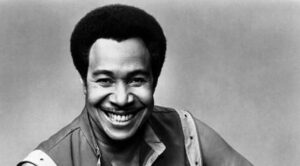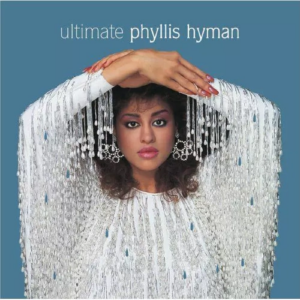Regardless of your faith walk, you’ll be hard-pressed not to be moved by “His Pain II” (featuring Kendrick Lamar) on this sleeper superstar-in-the-making from the Windy City. Minimalist ghetto art with all the earnest worship of a young choirboy, the hoarse refrain of “I don’t know why he keep blessing me” gets under the skin and blossoms in the spirit, something expected of gospel but not of hip hop soul. His adolescence-invoking name may be readily dismissible, but BJ the Chicago Kid’s fully realized artistry is far from it. Following the footsteps of fellow Chicagoan Curtis Mayfield in the sung hip-hop vein mastered by Lauryn Hill and carried forward by Frank Ocean, BJCK does these legacies proud on a debut album that surprises in its hard-nailed, yet deeply compassionate artistry and smooth vocal deliveries. It may not be impressive for those whose music appreciation ends with New Jack Swing, but for those who thought that 90s hip hop soul had something special to offer the Black American Music tradition, BJ the Chicago Kid has something for you.
It helps BJ the Chicago Kid can sing. He’s a peer to the similarly voiced CJ Hilton, whose “Cold Summer” made some waves a year or so ago. BJCK’s natural voice has a relationship to Marvin Gaye on cuts like “Good Luv’n,” which capitalizes off the comparison, but his falsetto moves him into William Hart (of the Delfonics) territory on sensual throwback ballads like “Aiight.” On a fuss-free, go-for-break slow jam like “Good Love” there is a penchant to sing harder and nasal in ways reminiscent of boy groups like Jodeci and Dru Hill. More sumptuous are the doo wop harmonies that would have done The Impressions proud on gorgeous touchstones like “I Want You Back/Lady Lady” and the “East Side High 2012 & Forever” school anthem, letting listeners know from whence this young man came.
Messages of black uplift, black power, black work ethic and black pathologies that need to be overcome permeate this debut project, which too is a part of BJCK’s Chicago legacy as the birthplace of Black self-determination luminaries like slain Black Panther Fred Hampton, city founder Jean Baptiste Point du Sable, and Third World Press founder Haki R. Madhubuti. With well-selected interludes from the streets as well as the academy and even Hollywood, BJCK’s socio-political influences are vast and evident throughout. Like Cody ChestnuTT’s critically acclaimed Landing On A Hundred, everything on Pineapple Now-Laters is produced by ears honed on ‘70s soul and ‘90s hip-hop, not unlike Kanye West, but grittier, dirtier and somehow more authentic than West’s work. There is an understanding of the streets lived, not performed, that makes even relationship songs like “Fly Girl Get ‘em” edged with a hint of cynicism.
Most of the music productions are collages of different eras made fresh and cut in ways that nothing feels derivative, just forward moving, but back-appreciating. Even the more self-consciously contemporary cuts like “Plai Boi” and “Sex is The Best Breakfast” owe a debt to Prince and jams like “Adore.” The lyrics are more hip hop than soul, with just enough expletives to make it worth mentioning, but romanticism and sensuality are not given short shift in a project that balances both the bedroom and the altar fairly well. Like Mary J. Blige’s My Life and Babyface’s Tender Lover was for my generation, Pineapple Now-Laters is an astonishing soul classic for this generation and their coarser, more world-weary sensibilities.
There is an effort to bring us old-heads along, with cuts like WAR’s “The World Is A Ghetto” getting completely reimagined with Kendrick Lamar, DJ Battle Cat, and Jairus Mozee, with a melody kept but appropriately distorted and remixed to reflect the chaos of the world commented on. It’s one of the album’s many stunning moments of ghetto art made brilliant and attention-worthy. Much like his contemporary Kendrick Lamar, one hopes that more than the sagging jeans and hoodie generation will be able to appreciate the arrival of this young genius on the verge of greatness. Highly Recommended.
By L. Michael Gipson









